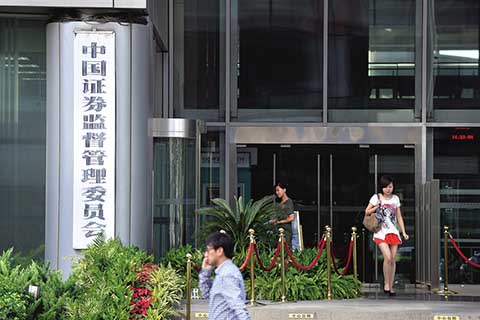China to Allow Foreign Control of Securities Firms

China’s securities regulator on Friday published draft rules that will allow foreign financial institutions to take control of domestic securities brokerages, moving to deliver on Beijing’s pledge to further open the country’s financial service market.
The China Securities Regulatory Commission (CSRC) released the revised rules for foreign investment in China’s securities firms and will collect public comment on the new rules until April 8.
The new rules will increase the ceiling of foreign ownership in a Chinese securities firm to 51% from current 49%. The 51% cap will be eventually removed three years after the new rules take effect, a senior official has said.
China pledged to further open its financial market last November, following U.S. President Donald Trump’s visit to Beijing. Vice Finance Minister Zhu Guangyao told media at the time that China would allow foreign investors to own a majority stake of any joint venture in the securities, funds, and futures industries, and lift all caps on foreign ownership in three years.
The newly drafted rules revise China’s existing regulation on foreign investment in the securities sector, which was introduced in 2002. A total of 24 revisions were made, according to the CSRC.
In addition, the revised rules will allow foreign investors to hold up to 51% of a listed Chinese brokerage, rising from current 25%. But a single foreign shareholder wouldn’t be allowed to own more than 30% of the publicly-traded brokerage.
Global financial giants such as Goldman Sachs, Morgan Stanley, UBS and Credit Suisse currently operate in China through minority-owned ventures.
In a recent interview with Caixin, Sergio Ermotti, chief executive of UBS Group, said the company is hoping to increase its ownership in its China venture to 51% when regulations permit.
The new rules also set higher requirements on foreign investors, saying they must be financial institutions with a sound international reputation, and good business and credit records over the past three years.
Foreign-funded brokerages will also be allowed to engage in a wider range of businesses, according to the new rules. New brokerages can apply for four licenses and further expand their business after one year in operation, the draft rules say.
China granted foreign financial institutions the access to its massive financial market in early 2000s, but foreign investors’ presence in the Chinese market has remained small, due partly to lower-than-expected market access and increasingly aggressive competition from domestic rivals.
Currently, there are only nine foreign-funded securities joint ventures operating in China — excluding Hong Kong, Macau and Taiwan-funded firms — and most foreign-funded brokerages are limited to investment bank services due to licensing control.
China’s slow pace in opening up its financial market has been the target of growing criticism. The country’s banking sector has grown into the world’s largest in terms of assets and the total value of stocks traded on its bourses ranks second globally.
Concern has grown about financial risk from mounting bad loans and excessive leveraging in China, and officials have increasingly counted on market liberalization to promote reform, invigorate competition and moderate risks.
The lack of market accessibility has become a key factor fueling China’s financial risks, Tao Ling, vice director of the central bank’s financial stability bureau, said in September.
In 2015, China first eased control on ownership of Hong Kong and Macau investors in domestic brokerages under the Closer Economic Partnership Arrangement (CEPA), allowing them to hold as much as a 51% stake in a securities venture. So far, four brokerages controlled by overseas investors have been set up under the arrangement, including Huajing Securities, Shengang Securities, HSBC Qianhai Securities and East Asia Qianhai Securities.
Contact reporter Han Wei (weihan@caixin.com)

- 1Cover Story: China Carves Out a Narrow Path for Offshore Asset Tokenization
- 2Drownings Shake Chinese Enthusiasm for Travel to Russia
- 3Over Half of China’s Provinces Cut Revenue Targets
- 4Li Ka-Shing’s Port Empire Hit by Forced Takeover Amid Panama Legal Dispute
- 5In Depth: China’s Mutual Fund Industry Faces Overhaul After a Banner 2025
- 1Power To The People: Pintec Serves A Booming Consumer Class
- 2Largest hotel group in Europe accepts UnionPay
- 3UnionPay mobile QuickPass debuts in Hong Kong
- 4UnionPay International launches premium catering privilege U Dining Collection
- 5UnionPay International’s U Plan has covered over 1600 stores overseas






